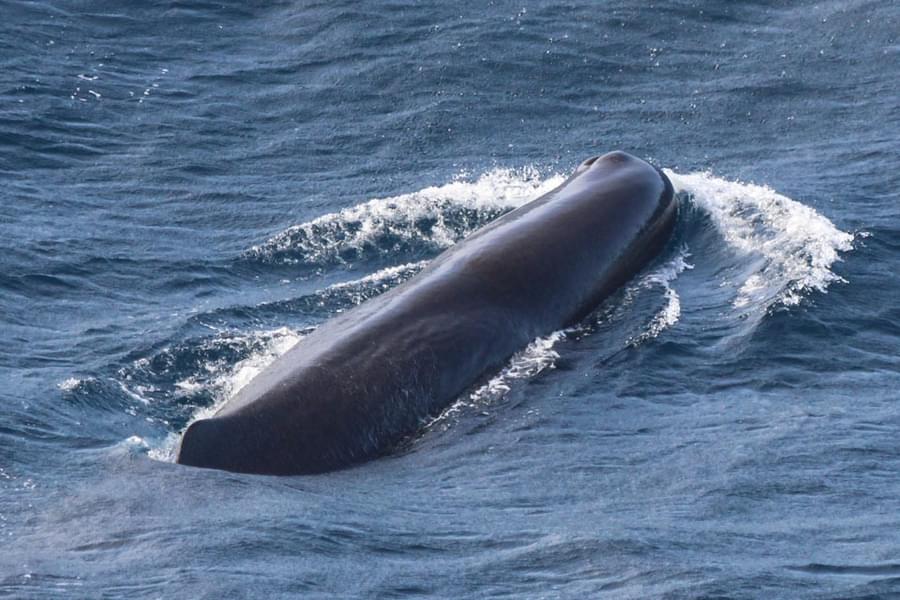The world’s oceans are busy places, full of human activity, with over 50,000 ships transiting the world.
These shipping lanes overlap with breeding, feeding and migration routes of the world’s cetaceans. Vessels can physically strike animals, termed ‘ship strikes’ which cause severe injury or death of the animal. Often sinking to the seafloor, ship strikes often go unnoticed and unreported. Injured animals may suffer long-term consequences such as a decrease in fitness which could also have welfare implications. The threat of ship strike is driving many cetacean species to extinction.
In some areas, a logical solution to prevent ship strikes would be to separate ships and whales via traffic separation schemes. A few initiatives have been put into action with great success, for example on the approach to the Panama Canal, where over a dozen ships transit daily, a precise, narrower transit shipping lane, plus speed restrictions have been put in place to mitigate the threat of ship strike to humpback whales, who breed around Las Perlas archipelago which is 40 miles from the canal's southern entrance. Recent estimates suggest this could have reduced ship strikes by up to 90%.
Another whale species that is particularly at threat from ship strike is the sperm whale. In 2022, a major shipping and logistics conglomerate, MSC Group, have re-routed their ships on the west coast of Greece to reduce the risk of collisions with a sub-population of sperm whales in the Mediterranean. MSC Group not only operates container ships in the area, but MSC Cruises operates between April and October to take cruise passengers on Greek itineraries. All MSC ships will be rerouted.
Only 200 to 300 individual sperm whales remain in the eastern Mediterranean. This sub-population of sperm whales lives in the Hellenic Trench, a deep sea area just south of the Greek coast. This 1,000m deep trench is a critical habitat for the sperm whale, where they are resident year round and therefore feed and breed here. Although deep diving, sperm whales must come up to the surface to breathe and spend time logging on the surface to recuperate their oxygen levels before diving to feed again. This behaviour puts them directly at risk of ship strike as whales logging just under the water’s surface can appear invisible to oncoming ships, making mitigation impossible. The Hellenic Trench area is one of the world’s busiest shipping lanes, with more than 80 huge cargo ships passing across this area every day. Many ships travel through the Suez Canal and into the area of the Hellenic Trench.
The International Fund for Animal Welfare (IFAW), OceanCare and WWF Greece are working in collaboration with the Pelagos Cetacean Research Institute, which has been studying the eastern Mediterranean sperm whale population since 1998. They have found that more than half the sperm whales found stranded on the Greek coast show evidence of ship strike. This is the highest proportion of deaths caused by ship strikes that is known for any whale population globally. Worldwide, sperm whales are considered ‘Vulnerable’ but due to the small size and geographic isolation of this Mediterranean sub-population, they are listed as ‘Endangered’ on the IUCN Red List of Threatened Species.
This re-routing by MSC Group is a substantial contribution to the protection of sperm whales in the Eastern Mediterranean. Decisions like these are a huge step forward for the protection of whales and will hopefully be mirrored by other companies worldwide. To read more about ship strike, take a look at ORCA’s The State of European Cetaceans Report.
You can read more on the MSC website here.

